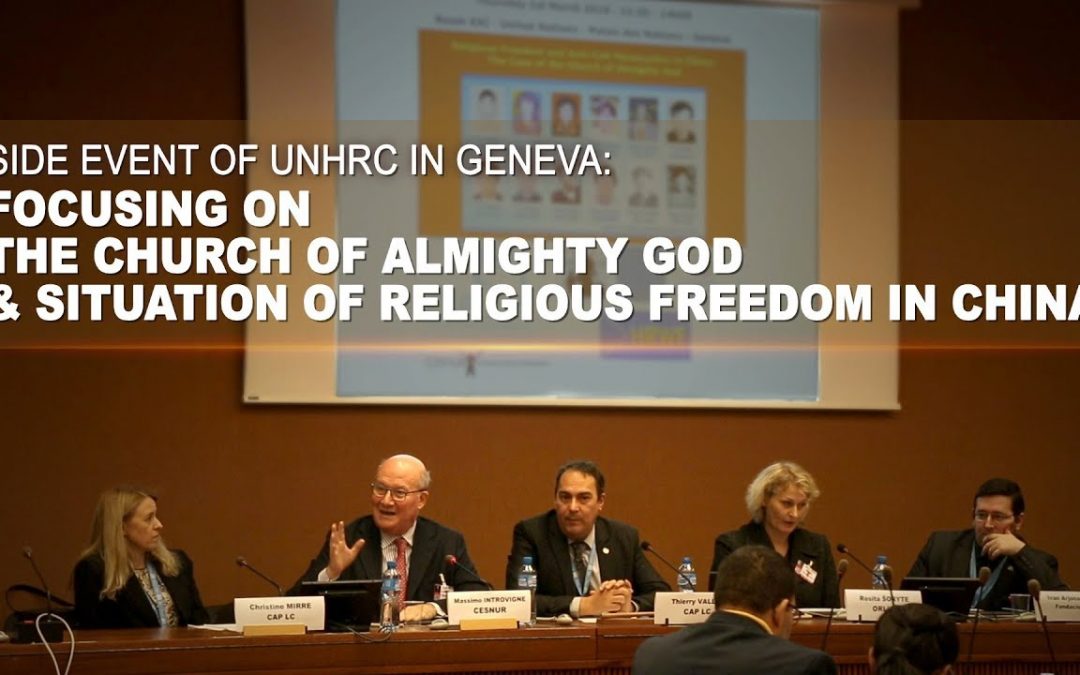
by CAP Liberté de Conscience | Nov 18, 2018 | CAP LC United Nations, UN UPR
In China, in 1989, a religious revival involved both the House Churches (i.e. the Protestant Churches whose activity is not authorized by the government) and the religious movement known as the Shouters, originating from the Chinese preachers Watchman Nee (1903–1972) and Witness Lee (1905–1997). In the same year 1989, the person later identified as Almighty God by her followers began participating in meetings of the Shouters. In 1991, she began to utter words that followers compared, for authority and power, to those expressed by Jesus Christ. Many Christians started reading these utterances and believing they were “what the Spirit says to the Churches” (Rev 2:7, 17). Among these was Zhao Weishan, who would later become the administrative leader of the movement. Not until 1993 did the readers of the utterances start believing that their author was the incarnate God, the second coming of Jesus Christ and Almighty God, the unique God. The movement, born in 1991, became known as The Church of Almighty God (CAG, also known as Eastern Lightning). While stating that God incarnated in our time in a female human being, the CAG never mentions her name. Several scholars identify her with Yang Xiangbin, a woman born in 1973 in northwestern China.

by CAP Liberté de Conscience | Apr 22, 2018 | UN UPR
On March 1, 2018, during the 37th session of the Human Rights Council at the United Nations in Geneva, the Coordination of the Associations and Individuals for Freedom of Conscience (CAP LC) organized a Side Event on the denial of religious freedom in China and the case of The Church of Almighty God. The event was introduced and coordinated by Mr. Thierry Valle, the president of CAP LC. A panel of international scholars and human rights and freedom of religion experts discussed the dramatic situation of the members of The Church of Almighty God both in China, where they are severely persecuted, and in South Korea and Europe, where their requests for asylum are often denied. During the event, attendees also watched a video with testimonies of three members of The Church of Almighty God who suffered brutal persecution at the hands of the authorities of the Chinese Communist Party (CCP). Their stories aroused profound reflection generally.

by CAP Liberté de Conscience | Oct 22, 2013 | CAP LC United Nations, UN UPR
Falun Gong (FLG) is a Chinese exercise and spiritual discipline emerging from Buddhist and Daoist
traditions. The practice is widely recognized as nonviolent. Its moral teachings centered on the tenets of
truth, compassion, and tolerance carry benefits to adherents and their communities. By the late 1990s, FLG
was estimated to have tens of millions of adherents in China.





